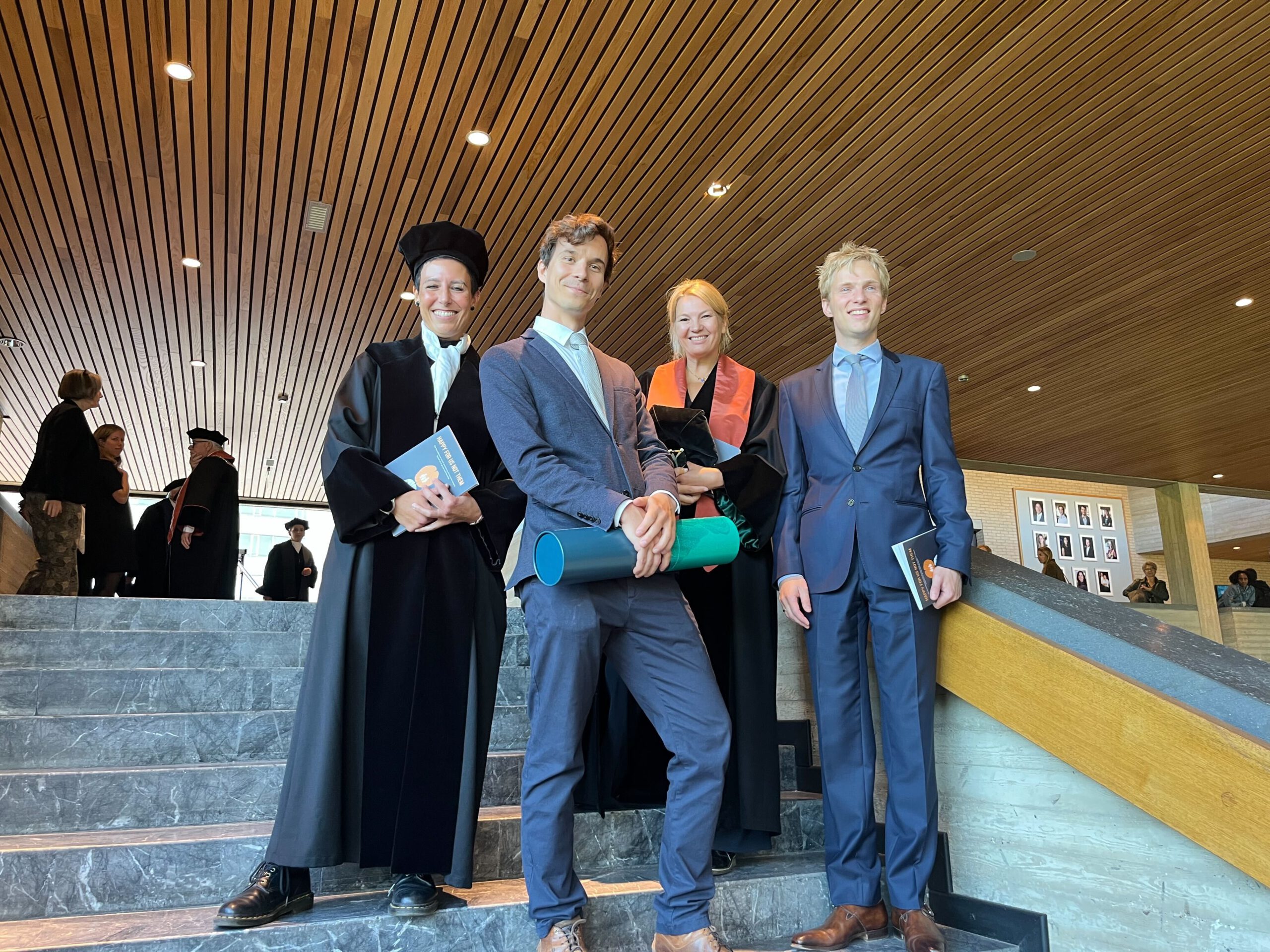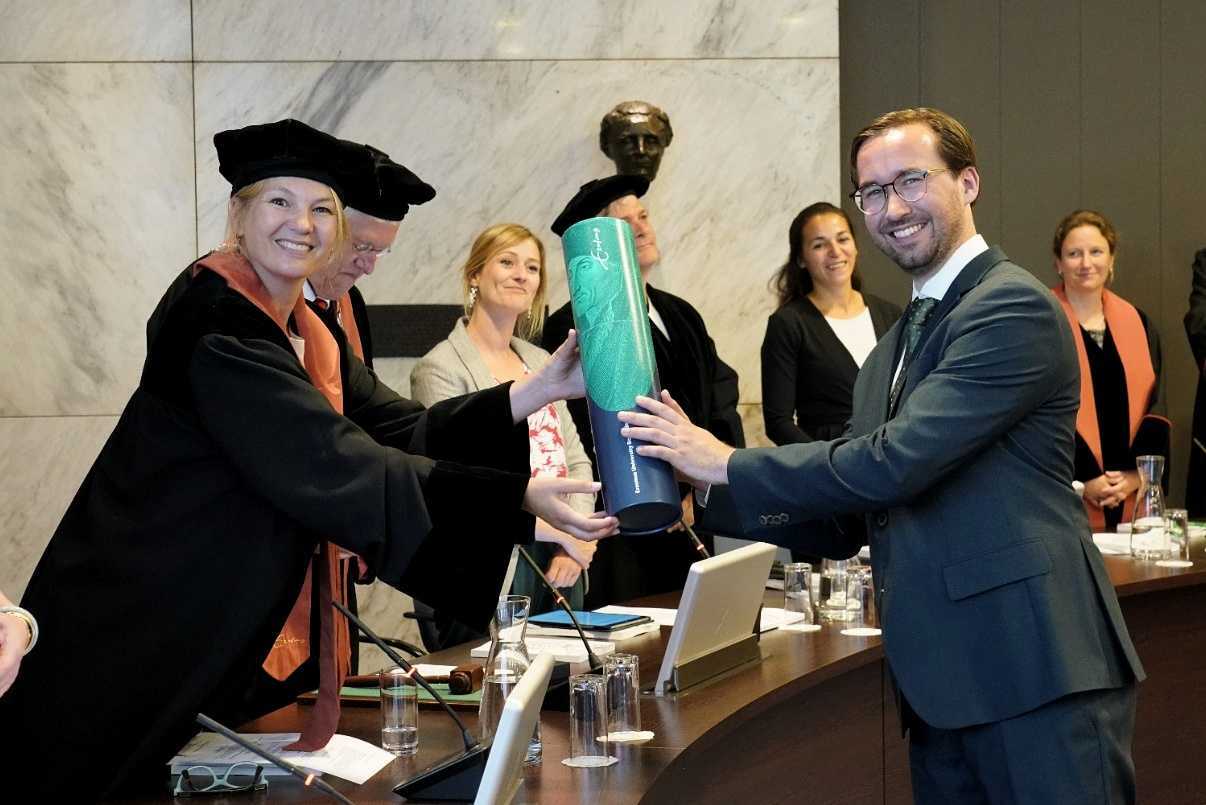This week, our colleague Yara Toenders wrote a blogpost about youth perspective on performance pressure. Read the blog here.
This week, our colleague Mara van der Meulen wrote a blogpost about how to keep young kids happy and alert during sometimes long and boring data collection. Read it here.
This week, our colleague Simone Dobbelaar wrote a blogpost about the co-occurence of aggression and prosociality as forms of social responsivity across childhood. Read the blog here.
This week, our new colleague Nienke Steenks wrote a blogpost about performance pressure and how to make this discussable with adolescents and young adults, through YoungXperts. Read it here.
There is a new blogpost by Lina van Drunen about how to (or not?) combine a sports and scientific career. Please read her blog here.
This morning, September 22nd, Philip Brandner defended his dissertation, titled: Happy for Us not Them: The foundational neural processing of vicarious reward.
Dissertation in short:
Human cooperation is unique in the animal kingdom. We cooperate not only with our close family and friends but also with strangers. One aspect that plays a role in cooperative behavior is how we feel for other people. If they hurt themselves do we feel empathy and compassion? Rarer perhaps, are we happy for them if they experience something positive? We asked ourselves: What happens in the brain when we are happy for others? And secondly, does it matter how close we are to the other person? We investigated these questions in a large group of Dutch adolescents and their parents. What we found is fascinating. Parts of the brain that are responsible for processing rewards activate as strongly when your family members win a reward as it does when you win for yourself. These emotional regions in the brain do not differentiate between your own reward and that of people who are close to you. What about strangers? No activation. The reward centers of the brain already differentiate between Us and Them. Our brains seem to be happy for us, not them.
Well done, Dr. Brandner!!
Proud Promotors: Eveline Crone, Berna Guroglu, Eduard Klapwijk.

In this week’s SYNC Spotlight, Iris Langereis writes about how to involve young people in doing research, by having co-evaluations among other things. Read all about this amazing way to do research here. She wrote this blogpost just before she leaves our lab, we wish her all the best!
In this after-summerbreak’s SYNC Spotlight, Yara Toenders is writing about her project, which is about mood swings in adolescents. You can read it here.
On Friday, 24 June 2022, Jochem Spaans has defended his PhD dissertation, entitled: ‘Happy to Help. Neural mechanisms of vicarious gaining in adolescence’.
Dissertation in short
Prosocial behavior describes those actions that benefit another person, group, or community, without necessarily involving a clear benefit for the actor. During adolescence, children continue to develop social skills such as perspective taking, allowing them to develop healthy relationships and more mature prosocial goals.
In my dissertation, I investigated one element of prosocial behavior that might partly explain why we tend to perform prosocial behavior without a material benefit for ourselves; the experience of positive emotion, or a feeling of reward, when we help others. This experience is often referred to as a vicarious reward or a vicarious gain experience. These experiences are associated with activity in a specific region of the brain, the ventral striatum (i.e., the Nucleus Accumbens), which is also active when obtaining rewards for oneself of a wide variety.
I investigated these vicarious reward experiences in a longitudinal sample of adolescents (investigating the same group for three consecutive years), using fMRI to gain insight in neural activity when adolescents earned money for themselves and for a self-chosen charity.
Two highlighted results: First, whether or not vicarious reward experiences occur when gaining for charity in adolescence is related to individual differences in perspective taking skills and the tendency to donate to charity yourself. Second, the developmental trajectories of activity in the ventral striatum when obtaining rewards for self and charity co-vary with changes in donation behavior and perspective taking over time. This suggests a developmental pattern towards more similar neural activation for self gains and charity gains.
Proud promotors: Eveline Crone & Sabine Peters
Well done, Dr. Jochem!!


